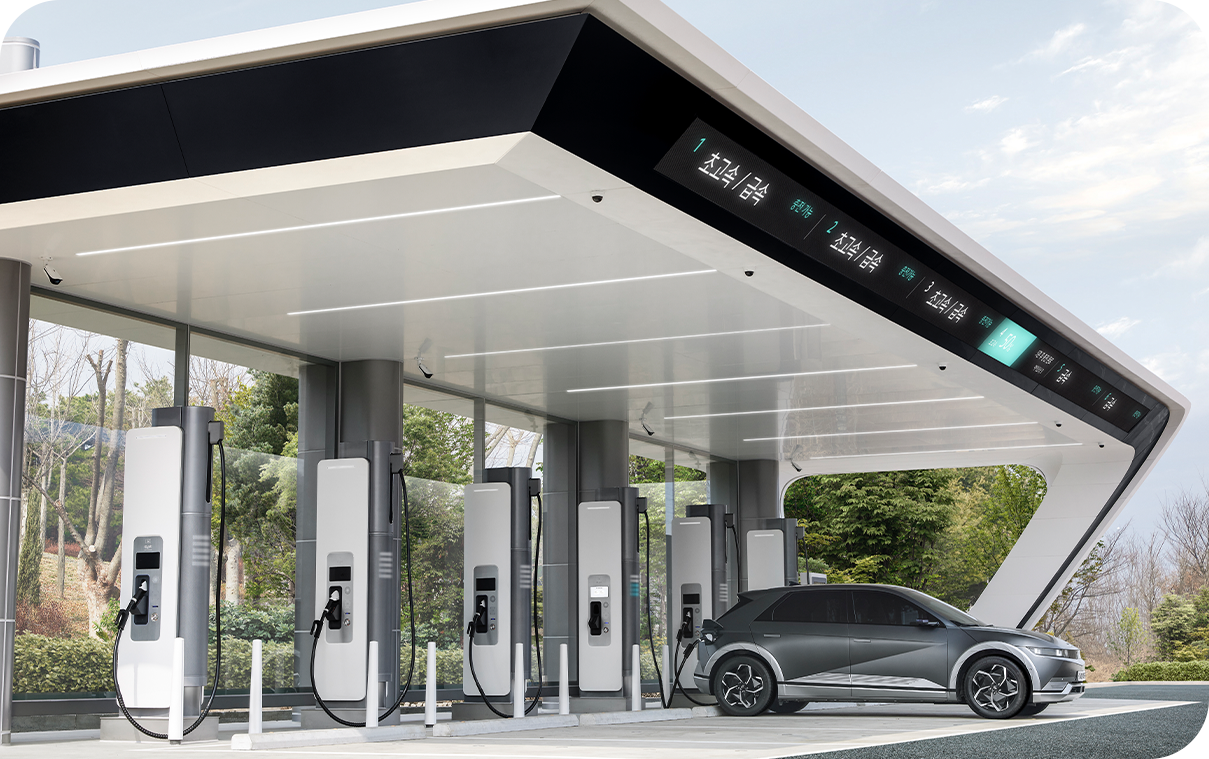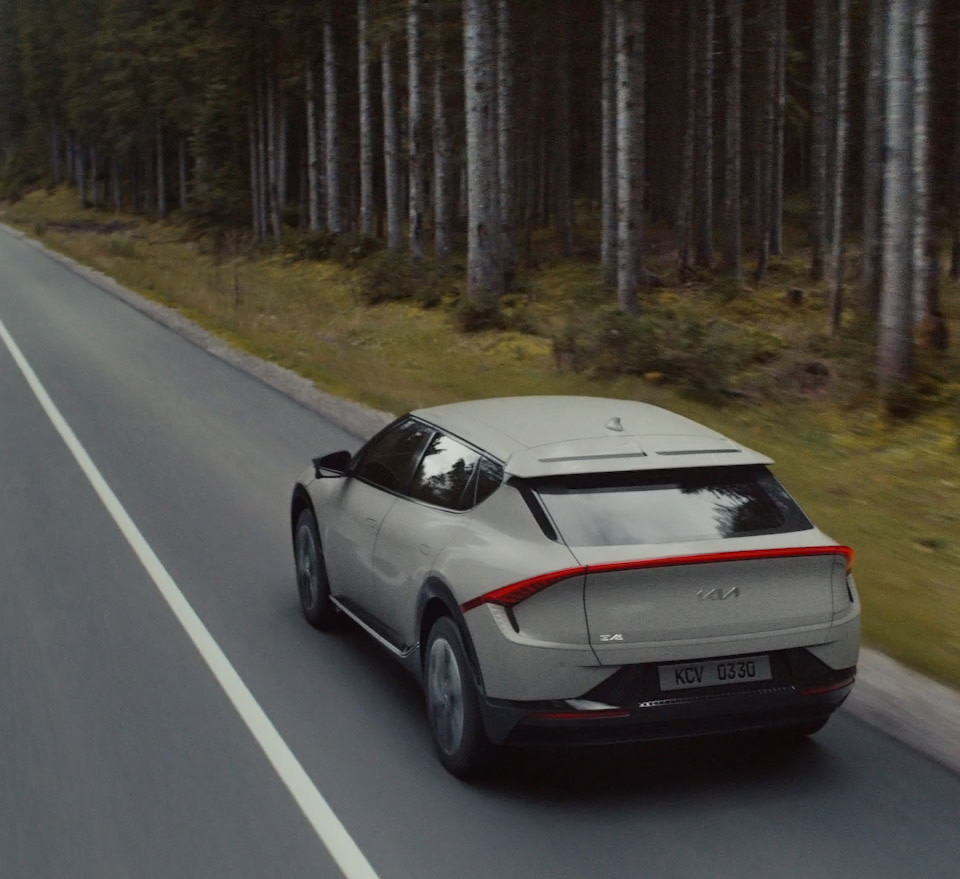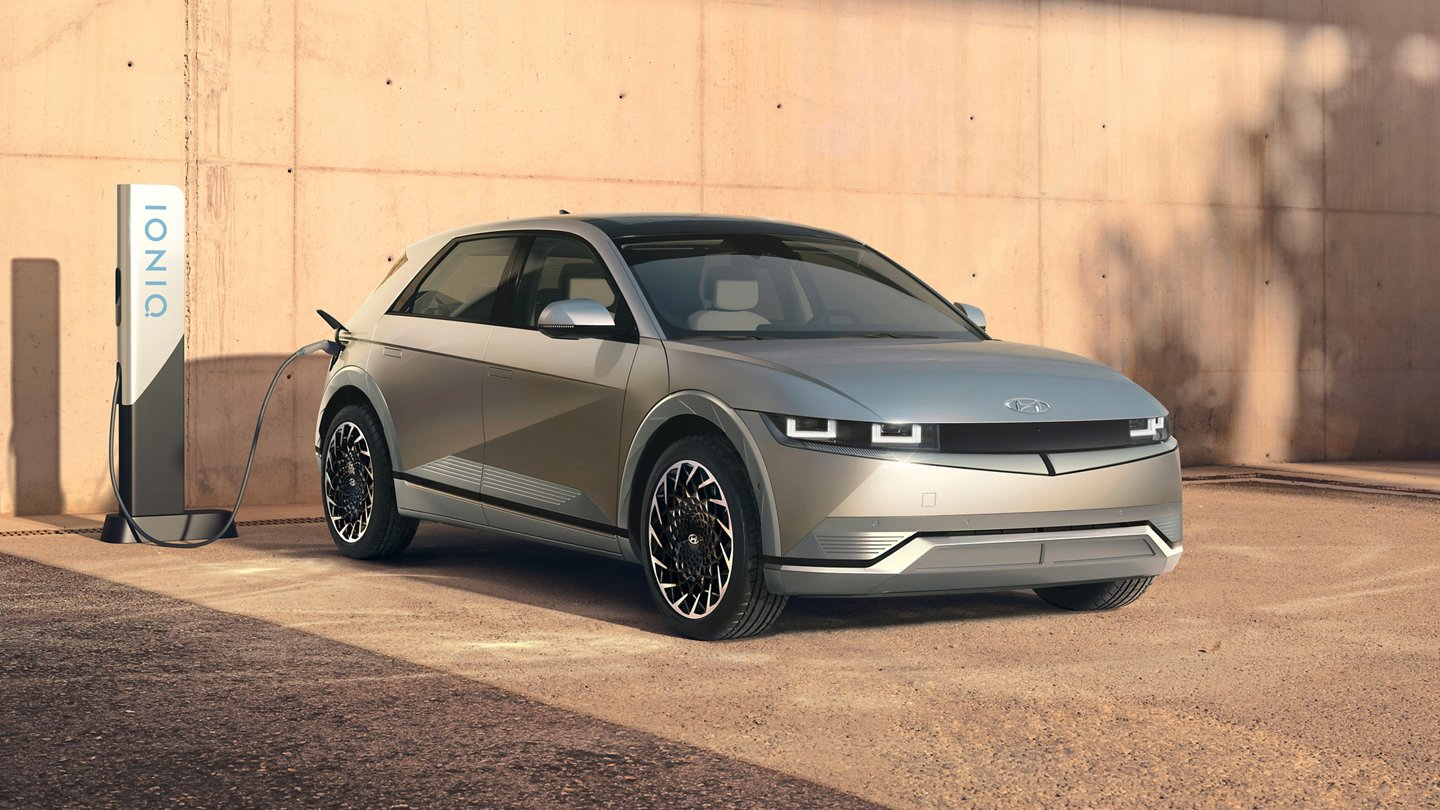Hyundai To Roll Out Fast Chargers Inspired By F1 Pit Stops
With Hyundai Motor Group's two new EVs, the Hyundai Ioniq 5 and Kia EV6 hitting dealerships later this year, the company has big charging plans for the home market. Inside EVs reports that Hyundai is set to roll out its network of fast-charging stations in South Korea.

The network, called E-pit, will initially be made up of 20 stations (120 total charging stalls) with 12 of those stations on highways and the other eight in city centers. The chargers themselves are 800 volts and are capable of providing either 62 miles of range in five minutes or 80 percent charge in 18 minutes, Hyundai says. This is impressive if you're in a pinch and need to get to work or somewhere else in a timely manner.
The network is similar to Tesla's Supercharger network in that it's backed by the automaker. But it's unique in that its chargers are compatible with all EVs. This is something Tesla can't claim. So these aren't just for use with Hyundai/Kia vehicles. The chargers use the CCS Combo 1 connector.

With other automakers introducing their own dedicated charging networks, including Rivian, it makes sense that Hyundai is coming out with its own. It's the right move for them to have it coincide with the introduction of two new EVs as well. Hyundai says the chargers were inspired by Formula 1 pit stops, hence the name E-pit and the relatively brief charging times.
To streamline service so customers can get back on the road faster, Hyundai has introduced a mobile app that allows customers to easily pay and charge through the app. Called Plug & Charge, it bundles customers' authentication, payment method and charging preferences into one seamless transaction so drivers can actually charge and go.
There's no word whether this network will be coming to the U.S. Right now it's badly needed in South Korea, as the Korean Times reports that with 60 percent of dwellings being apartments and the shift towards EVs, chargers can't be built fast enough.
